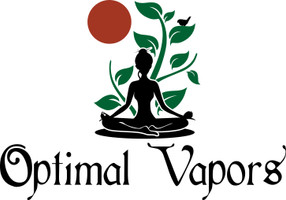Many CBD discussions and anecdotes center on people's experiences with anxiety, stress, or pain relief. Yet, in recent years and months, CBD has witnessed phenomenal growth in popularity among the fitness and sports communities, and it does not appear to be slowing down anytime soon. From moderately active to seasoned professional athletes and everyone in between, it's evident that CBD has found a place in many people's busy lifestyles. In this piece, we will look at some of the questions about taking CBD with sports and activity and how it can be implemented into an active lifestyle.
First, let's clear up some of the most frequently asked CBD-related questions in the sports world:
Will CBD make me high and impair my performance?
The short answer is no, it will not.
Because CBD is produced from hemp or cannabis, it's simple to see where this idea originates from. Thankfully, CBD is an entirely distinct molecule from those that can impair cognition. This is one of the variables that may explain the rise in the popularity of vaporizing CBD; some sports use opiate-based treatments for rehabilitation and pain management, which are not without their drawbacks. Although these drugs efficiently treat pain, the impact on mental and physical performance is an unappealing tradeoff for many.
Would CBD show up in a drug test in Sports?
CBD as a chemical is completely legal in the US, thus it won't show up on a standard drug test (and even if it did, it wouldn't be a problem). However, it is always important to ensure that the CBD product you are using has also produced lab findings, because residual THC levels left over from the manufacturing process could result in unlawful levels of THC being present, resulting in a failed test.
While professional sports testing can be considerably more extensive and may test for many more chemicals, CBD is still widely allowed in a wide range of competitive sports as the stigma surrounding it fades. We've gone a little more in-depth here for more reading on the professional sports world and CBD.
But for now, let's take a look at some of the most popular ways to include CBD in daily life and casual exercise.
How can I incorporate CBD into my busy lifestyle?
Vaporizing CBD oil tincture is the most common and also one of the quickest ways to take CBD. We won't go into too much depth about how to use CBD oil here. To summarize, this approach absorbs into the bloodstream and is most commonly used for recreation and mental well-being. This approach allows for rapid absorption into the body and is small and portable, making it ideal for use outdoors or when traveling long distances.
Topically applying CBD directly to the skin is another approach chosen by those with particular, localized discomfort or muscular tension. When a CBD product is applied to the skin in this manner, it absorbs into the area to which it is applied rather than the bloodstream, allowing you to conveniently target specific areas of the body. This can be done using a CBD cream, but CBD oil can also be used depending on the concentration of CBD you wish to apply.
The action of massaging cream or oil into the skin, particularly in regions of soreness, can also help improve circulation and relieve muscle tension, which can be beneficial to your recuperation.
Speaking of recuperation, this is another area in which some individuals are interested in CBD. We've talked about how CBD can be taken directly alongside your activities, but it's vital to remember that your sports performance, health, and well-being are all heavily reliant on a solid foundation of rest and recovery. Regular, quality sleep is vital for our bodies to repair and keep us running at our best.
Certain CBD products are developed with this in mind; the combination of natural soothing compounds associated with relaxation and sleep makes them great for post-workout or pre-bedtime use, allowing you to wake up well-rested and ready to go.
There are various ways that people may want to consume CBD, and we have only discussed a handful of them; ultimately, it comes down to personal preference and what works best for you. While CBD is not a miracle cure for sports injuries or severe pain, many people find it to be an excellent supplement to their workouts, sports, or exercise, and finding your unique balance will be part of the process. Whether it's taking CBD oil before/after a workout (or both), massaging CBD oil topically into areas of discomfort, or including it in your rest and recovery regimen, investigate the choices in your own time to see if you can achieve your ideal personal balance.

